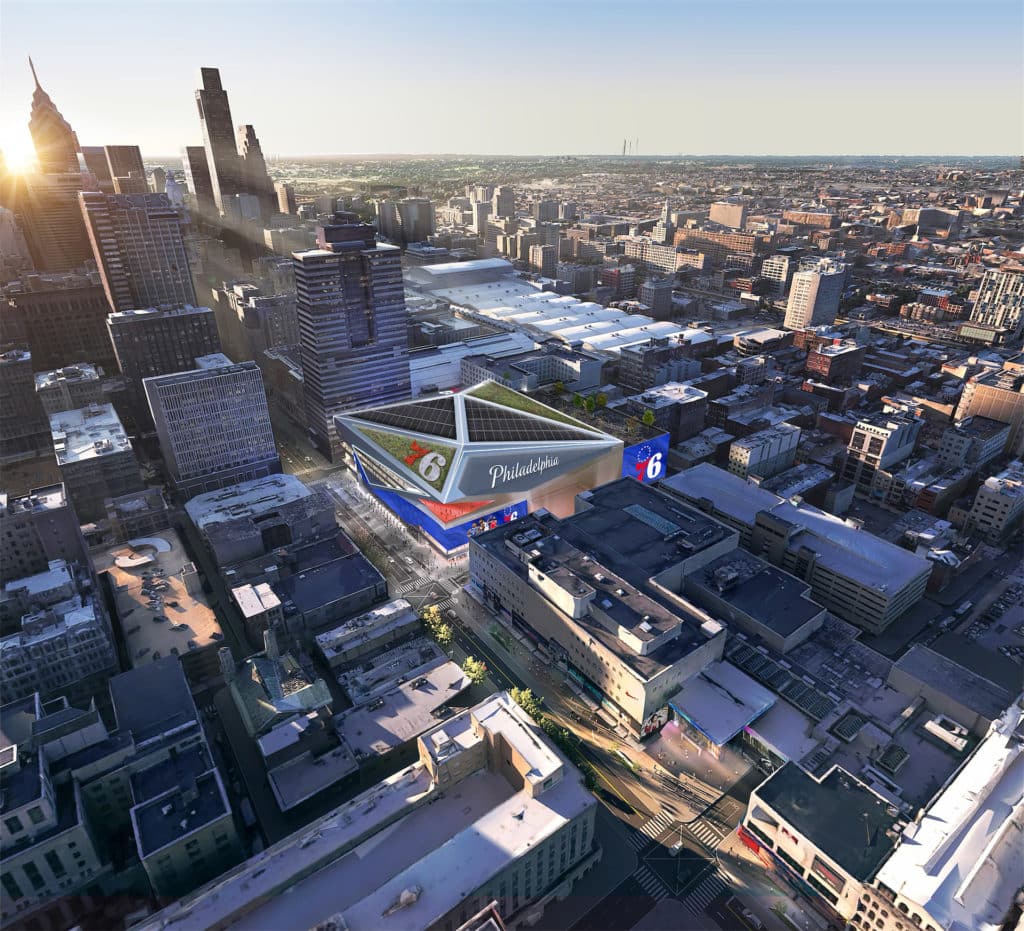Ad Disclosure
Arena Debate: Now it’s Come Down to Squeezing the Sixers for Every Last Dollar

A majority of Council members are expected to vote in favor of the project, given the support it enjoys from the building trades unions, widely viewed as the most potent force in Philly politics, and other powerful local constituencies. But given the high-profile opposition from Comcast Spectacor, the 76ers’ current landlord at the Wells Fargo Center, and advocates for Chinatown, which borders the proposed site, many lawmakers may feel they need political cover to vote in favor of it. Being able to say Council squeezed millions more out of the 76ers owners could go a long way.
Councilmember Mark Squilla, whose district includes the proposed site and who introduced the legislation, said that in order for the project to move forward, the 76ers would have to agree to pay at least $10 million more in the CBA, and that he is pushing for a higher number, which he declined to share.
“The minimum has to be another $10 million, if you want to be realistic, but I think we need more than that,” Squilla told reporters after Tuesday’s hearing. “I don’t think we as a body would support anything less than that, so there has to be some give.”
“A majority of Council members are expected to vote in favor of the project, given the support it enjoys from the building trades unions, widely viewed as the most potent force in Philly politics.” Ding ding ding! We have a winner! We’ve been saying that for two years now, so ‘I don’t know why you’d read any other site,’ as The Maestro used to say. The Sixers have the trades and they have Mayor Parker. They really don’t need anything more.
What you’re seeing is Council trying to get their pound of flesh here, also known as extortion. The arena is $1.3 billion in private funding and the community benefits agreement is a proposed $50 million, which would be the largest CBA in Philadelphia history. But Squilla wants $10 million more, minimum, and every other council member wants something for their district to justify a “yes” vote. So it’s basically politics as usual at City Hall.
The question, truly, is what the CBA money should be used for. The current arrangement doesn’t put enough money into Chinatown. It just doesn’t. The majority of it should have been steered there in the first place. As such, the opposition is asking for $300 million in community benefits. There’s a press conference Wednesday to talk about that, and a statement from John Chin of the Philadelphia Chinatown Development Corporation reads like this:
“As multiple City Councilmembers have stated, the arena is worth at least $300 million to our city, and the current deal is just 1/6 of that.
We are appreciative of City Councilmembers opening up this conversation to reach that $300 million number, and substantively engaging stakeholders in and beyond Chinatown to make sure the people of Philadelphia are part of the agreement and not an afterthought. Previous City and developer engagements have failed to deliver sincere and meaningful outcomes, which is what we are now trying to achieve through this process.
PCDC’s requests reflect a piece of the overall larger mitigation efforts that are necessary to ensure Chinatown can survive, all Philadelphians are protected from harms that the arena would inflict, and have a voice in shaping real solutions.”
Yeah listen, if that’s their prerogative, so be it. Chinatown could have worked this out months ago with the Sixers and with Council, but then it gives the impression that they’re capitulating on a project they vehemently oppose if certain financial conditions are met, in this case, sextupling the community benefits agreement. If you sense defeat, you pivot to getting more out of a deal that feels inevitable, right? If the choices are something vs. nothing, then take the former and accept whatever “sellout” label comes with it. Maybe $300 million is too much of an ask, but we’ll find out soon. If we’re talking about negative arena impact, Chinatown will get the brunt of it, and therefore should receive the majority of the CBA money, despite their two-year effort to kill the project.
Kevin has been writing about Philadelphia sports since 2009. He spent seven years in the CBS 3 sports department and started with the Union during the team's 2010 inaugural season. He went to the academic powerhouses of Boyertown High School and West Virginia University. email - k.kinkead@sportradar.com